Coconut Oil vs Argan Oil: Which is Better for You?
Both, coconut oil and argan oil, have gained popularity in recent years for their various benefits for the skin, hair, and even cooking. However, they have different properties and uses, and it can be challenging to decide which one is better suited for your needs.
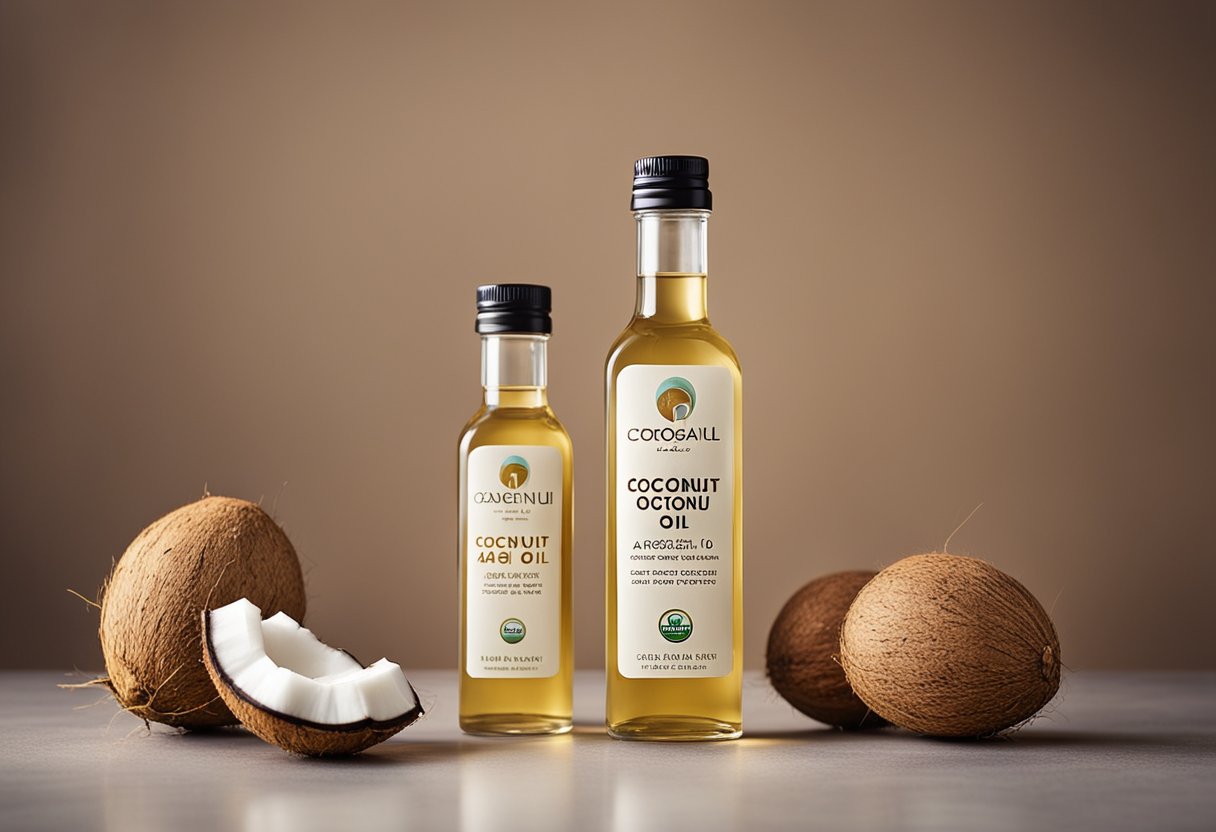
Coconut oil is a versatile oil that has been used for centuries in tropical regions for cooking, skincare, and haircare. It is extracted from the meat of mature coconuts and is a rich source of fatty acids, vitamins, and minerals. Coconut oil is known for its moisturizing properties and is often used to soothe dry skin and hair. It can also be used as a natural makeup remover, lip balm, and conditioner.
On the other hand, argan oil is a rare oil that is extracted from the kernels of the argan tree, which is native to Morocco. It is rich in vitamin E, antioxidants, and essential fatty acids, making it an excellent choice for nourishing and protecting the skin and hair. Argan oil is often used to reduce the appearance of fine lines and wrinkles, hydrate the skin, and tame frizzy hair.
So, which oil is better for you? The answer depends on your needs as well as your personal preferences. In the following sections, we will compare coconut oil and argan oil in terms of their properties, benefits, and uses, to help you make an informed decision.
Brief Overview

Coconut Oil
Coconut oil is a natural oil extracted from the kernel or meat of mature coconuts. It is high in saturated fats, which makes it a solid at room temperature. Coconut oil has been used for centuries for cooking, skin care, and hair care.
Coconut oil is rich in medium-chain fatty acids (MCFAs), which have antimicrobial properties and can help protect the skin from harmful bacteria. It is also a good moisturizer and can help soothe dry, itchy, or irritated skin. Coconut oil can be used as a hair mask to nourish and strengthen the hair strands.
However, coconut oil may not be suitable for everyone. It can clog pores and cause breakouts, especially for people with oily or acne-prone skin. It can also make the hair appear greasy or heavy, especially for people with fine or thin hair.
Argan Oil
Argan oil is a natural oil extracted from the kernels of the argan tree, which is native to Morocco. It is rich in unsaturated fatty acids, vitamin E, and other antioxidants. Argan oil has been used for centuries for skin and hair care.
Argan oil is a lightweight oil that can be easily absorbed by the skin and hair. It can help moisturize and soften the skin, reduce the appearance of fine lines and wrinkles, and improve skin elasticity. Argan oil can also help tame frizzy hair, add shine, and protect the hair from damage.
However, argan oil can be expensive compared to other oils. It may also not be suitable for people with nut allergies, as it is derived from the nuts of the argan tree.
Coconut Oil vs Argan Oil – Which One Is Better?
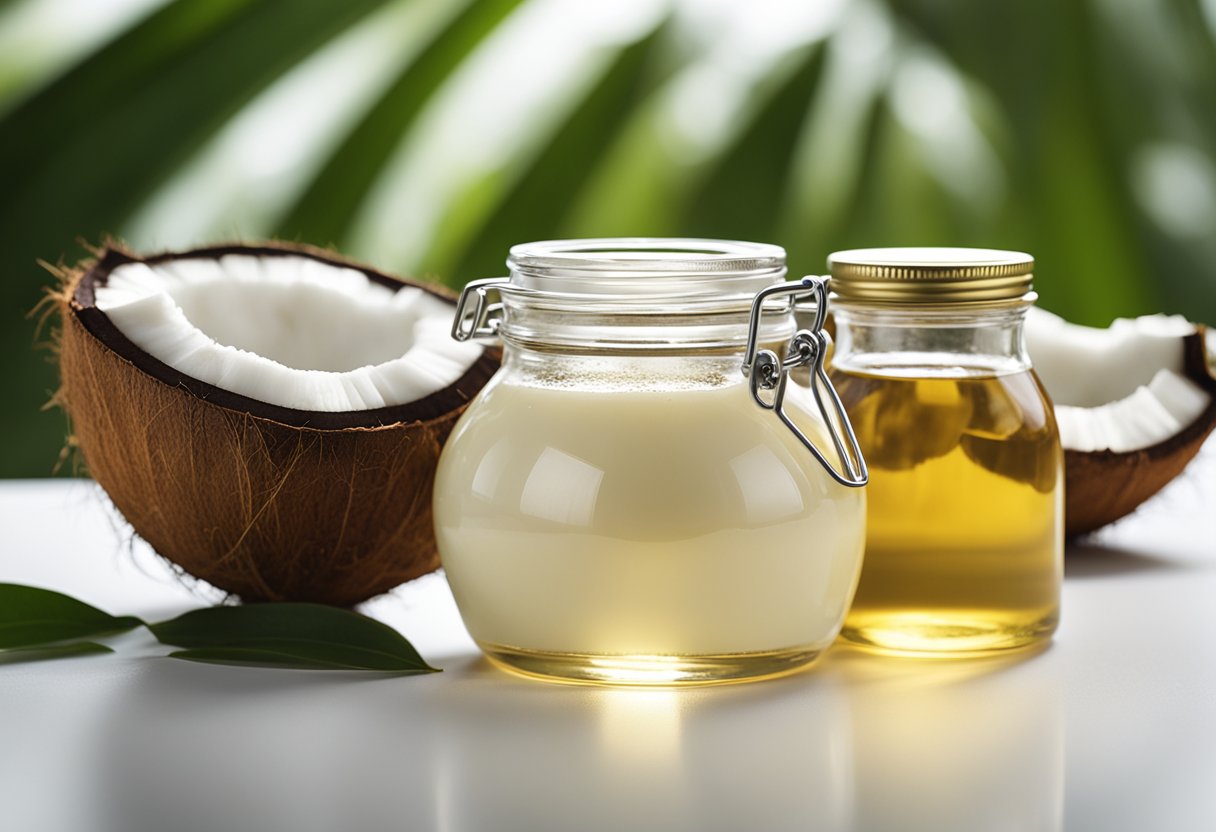
When it comes to choosing between coconut oil and argan oil, there isn’t a clear winner. Both oils have their unique benefits and uses, so it ultimately depends on what you’re looking for.
If you’re looking for an oil that’s versatile and can be used both in cooking and for skincare, coconut oil might be the better choice for you. Coconut oil has a high smoke point, making it ideal for cooking at high temperatures. It’s also a great moisturizer for your skin, and can be used to remove makeup or as a hair mask.
On the other hand, if you’re looking for an oil that’s specifically beneficial for your hair and skin, argan oil might be the better choice. Argan oil is packed with antioxidants and essential fatty acids, making it a great choice for moisturizing and repairing damaged hair and skin. It’s also non-greasy and absorbs quickly, making it a great option for those with oily skin.
Difference in Usage
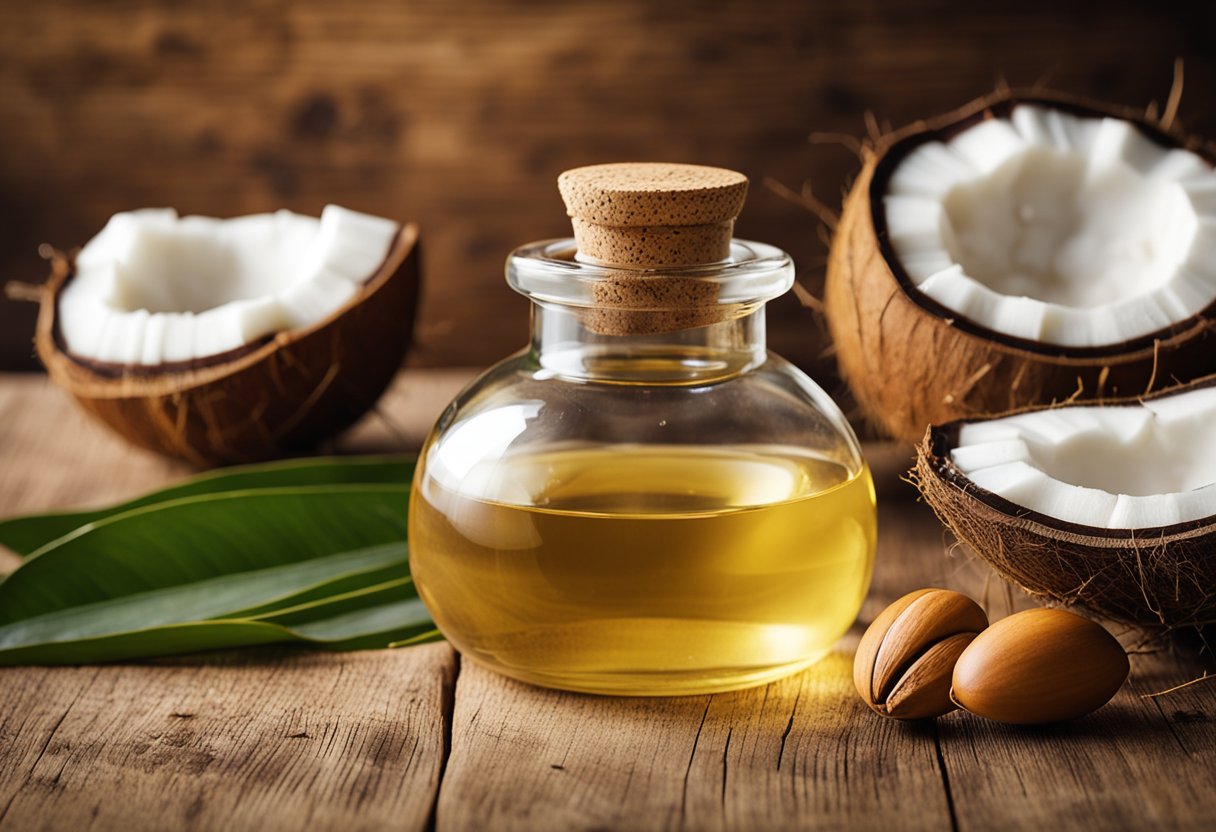
When it comes to usage, coconut oil and argan oil have some key differences. Here are some of the main ways in which they are used:
Coconut Oil
- Cooking: Coconut oil is a popular oil for cooking and baking, especially if you follow a special diet such as a vegan diet or a dairy-free diet. It is a great substitute for butter in baking and can be used for frying, sautéing, and roasting.
- Skincare: Coconut oil is known for its moisturizing properties and is often used to soothe dry, rough skin. Its antimicrobial qualities can help combat certain skin infections and conditions like eczema.
- Haircare: Coconut oil is a popular ingredient in haircare products because of its ability to penetrate the hair shaft and moisturize from within. It can be used as a hair mask or leave-in conditioner to help nourish and strengthen hair.
Argan Oil
- Skincare: Argan oil is lightweight and easily absorbed, making it an excellent moisturizer for all skin types. It is often used to help reduce the appearance of fine lines and wrinkles and can be used to soothe dry, itchy skin.
- Haircare: Argan oil is often used in haircare products to help tame frizz, add shine, and protect hair from heat damage. It can be applied to wet or dry hair to help nourish and strengthen strands.
- Nail care: Argan oil can also be used to help strengthen and moisturize nails. Simply massage a few drops into your nails and cuticles each day to help prevent breakage and promote healthy growth.
Difference in Smoke Point
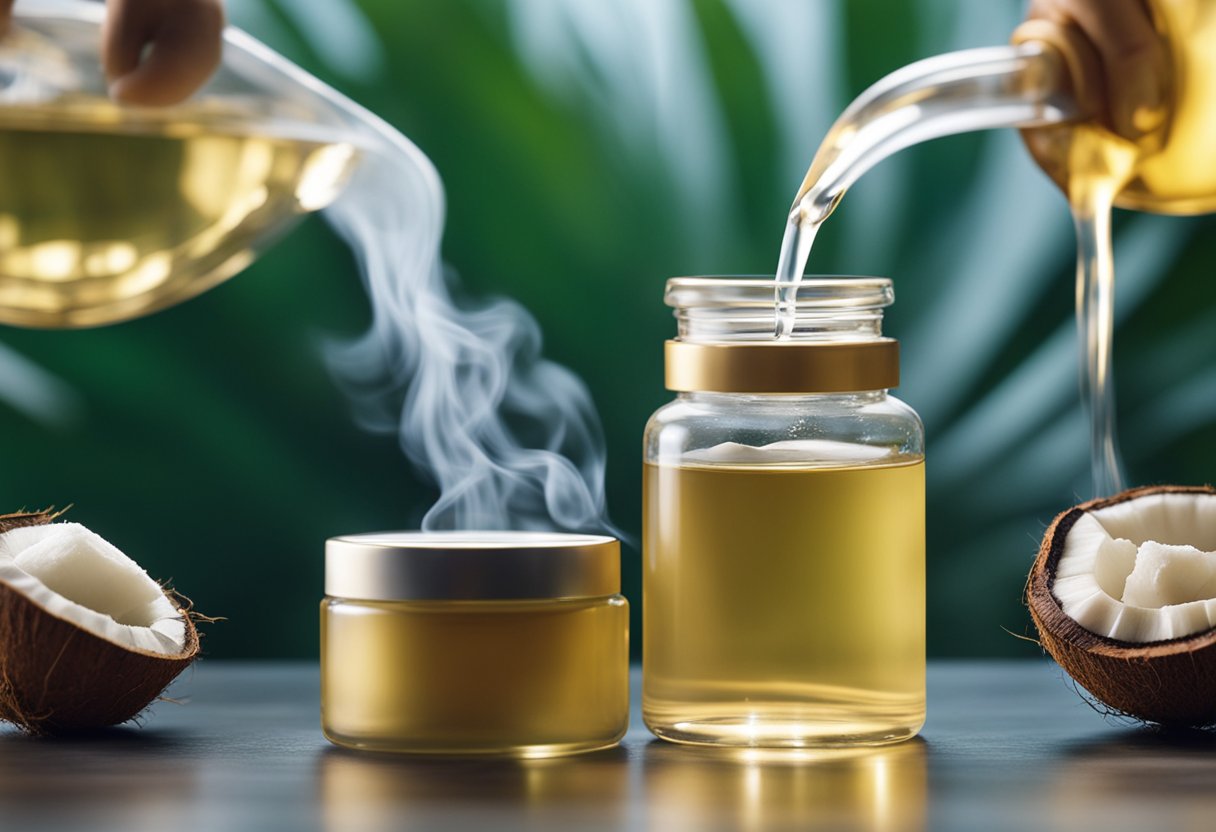
When it comes to cooking with oils, smoke point is an important factor to consider. Smoke point refers to the temperature at which the oil begins to smoke and break down, releasing harmful free radicals and a burnt taste to your food.
Coconut oil has a lower smoke point than argan oil. Refined coconut oil has a smoke point of 400°F, while unrefined coconut oil has a smoke point of 350°F. On the other hand, argan oil has a higher smoke point of 420°F.
If you are planning to use oil for high-heat cooking methods such as frying, grilling, or roasting, argan oil may be a better choice for you. However, if you are using oil for low-heat cooking methods such as sautéing or baking, coconut oil can be a good option.
It is important to note that the smoke point can vary depending on the quality and purity of the oil, as well as the cooking method used. For example, if you are using coconut oil for deep-frying, it is recommended to use refined coconut oil as it has a higher smoke point and a more neutral taste.
So if you are looking for an oil with a higher smoke point for high-heat cooking methods, argan oil may be a better choice. However, if you are using oil for low-heat cooking methods or for its health benefits, coconut oil can be a good option.
Difference in Flavor
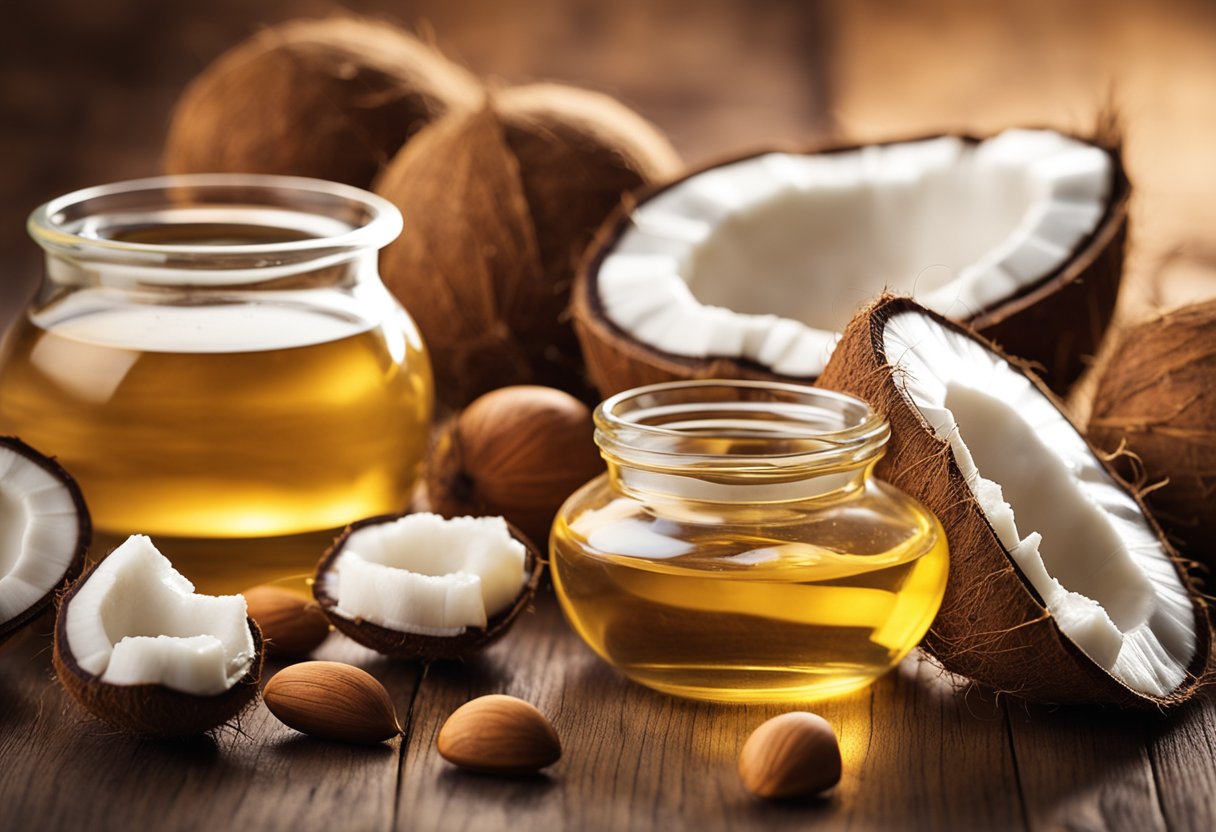
When it comes to flavor, there is a clear difference between coconut oil and argan oil. Coconut oil has a distinct tropical flavor that is nutty, sweet, and creamy. This flavor comes from the medium-chain fatty acids that make up the oil. The taste is often described as being similar to coconut meat, which is why it is often used in baking and cooking to add a tropical twist to dishes.
On the other hand, argan oil has a more subtle and nutty flavor. It is often described as having a slightly sweet and earthy taste, with a hint of bitterness. This flavor comes from the high levels of oleic and linoleic acid found in argan oil. While it is not as flavorful as coconut oil, argan oil adds a unique nutty taste to dishes and is often used as a finishing oil.
When it comes to cooking, both oils have their own unique uses. Coconut oil is great for baking and frying, as it can withstand high temperatures without breaking down. It adds a sweet and nutty flavor to baked goods and can be used in place of butter or other oils. Argan oil, on the other hand, is not ideal for cooking at high temperatures. It has a low smoke point and can become bitter when heated too much. However, it is great for drizzling on salads and vegetables or for use as a finishing oil in sauces and marinades.
While both coconut oil and argan oil have their own unique flavors, coconut oil is more tropical and sweet, while argan oil is more nutty and earthy. Both oils have their own unique uses in cooking and can be used to add flavor and nutrition to dishes.
Difference in Nutritional Composition
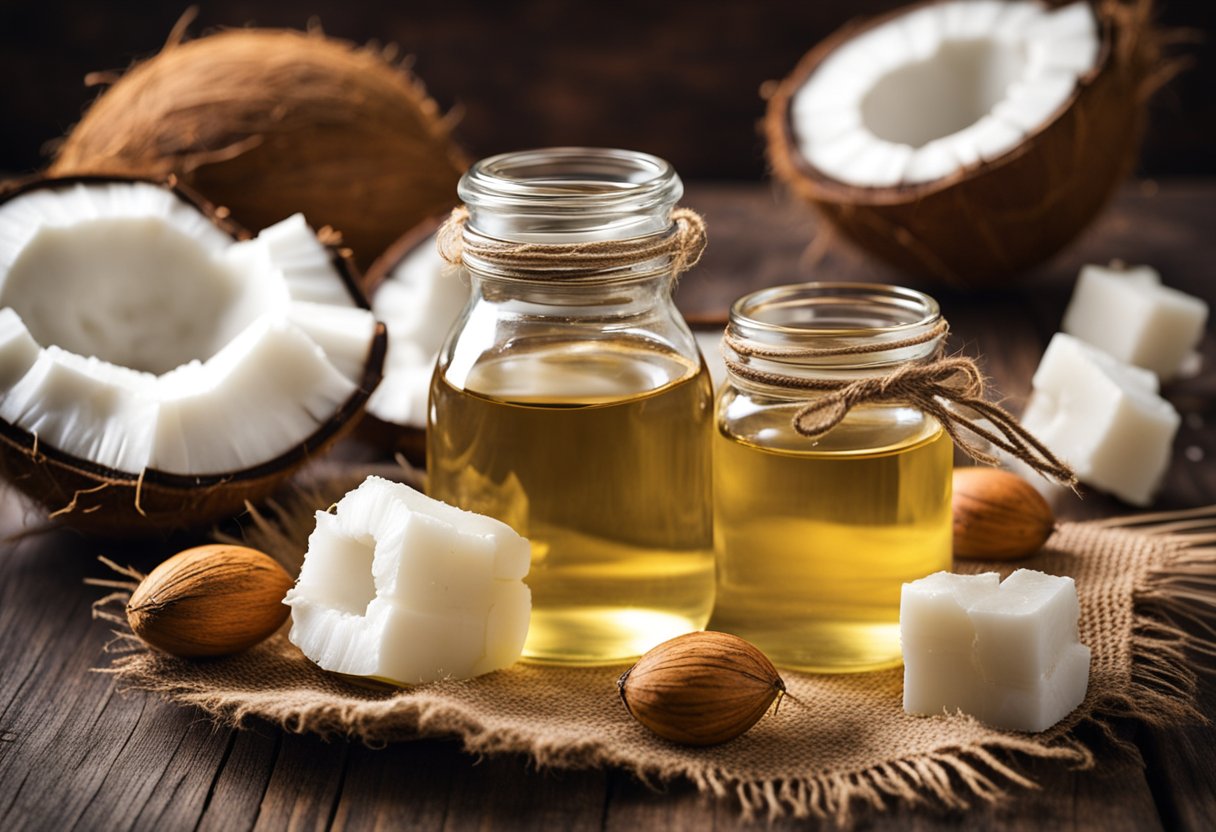
When it comes to nutritional composition, coconut oil and argan oil have some differences. Coconut oil is high in saturated fats, with about 90% of its fatty acids being saturated. On the other hand, argan oil is high in unsaturated fats, with about 80% of its fatty acids being unsaturated.
Coconut oil also contains a small amount of vitamin E, while argan oil is a rich source of vitamin E. Vitamin E is a potent antioxidant that can help protect your cells from damage caused by free radicals.
In addition to vitamin E, argan oil also contains other beneficial compounds such as phytosterols and squalene. Phytosterols are plant-based compounds that can help reduce cholesterol levels in your body. Squalene is a natural moisturizer that can help keep your skin hydrated and supple.
Coconut oil, on the other hand, contains lauric acid, which is known for its antimicrobial properties. Lauric acid can help kill harmful bacteria, viruses, and fungi in your body.
Difference in Health Benefits and Risks
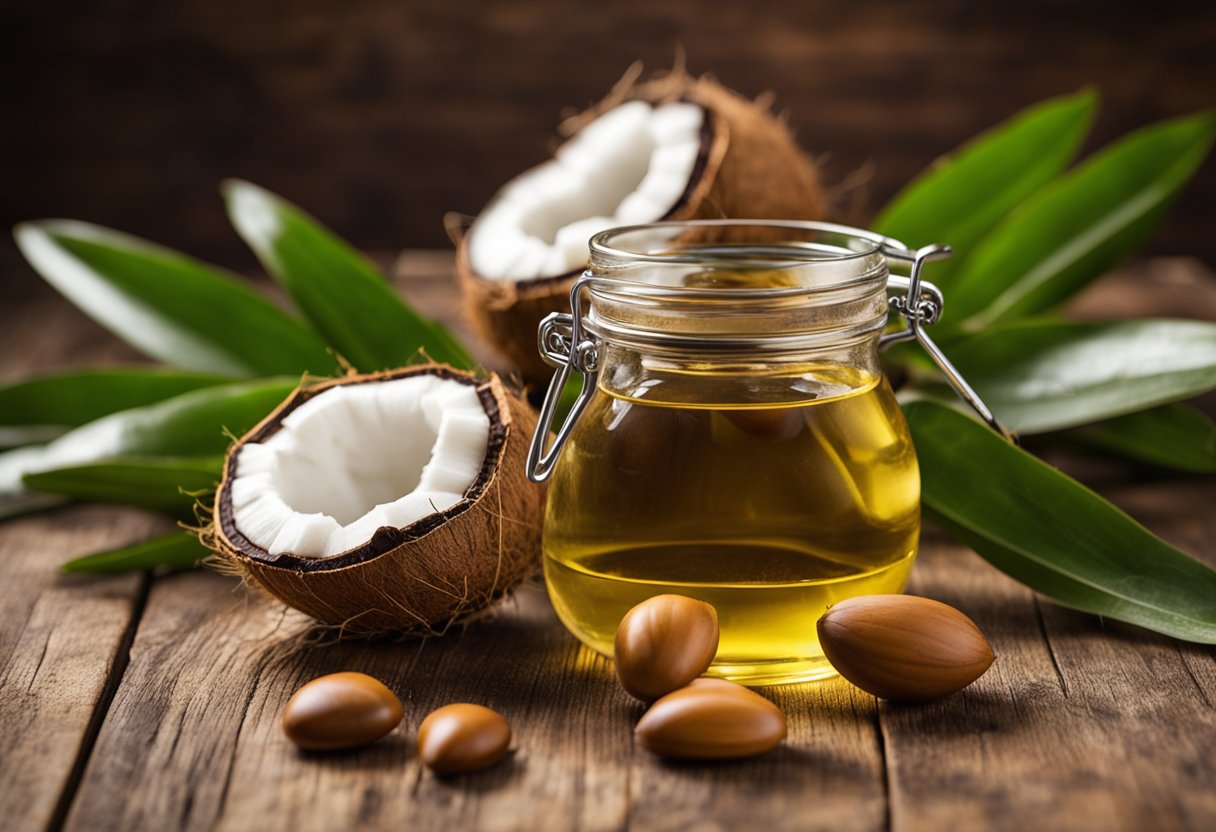
Coconut Oil
Coconut oil is high in saturated fat, which can increase your LDL (bad) cholesterol levels. However, it also contains lauric acid, a medium-chain fatty acid that can boost your HDL (good) cholesterol levels. Lauric acid is also known for its antimicrobial properties, which can help fight off harmful bacteria and viruses in your body.
Coconut oil is also a good source of vitamin E, an antioxidant that can help protect your skin from damage caused by free radicals. It can also help moisturize your skin and hair, making it a popular ingredient in many beauty products.
Argan Oil
Argan oil is high in unsaturated fatty acids, which can help lower your LDL (bad) cholesterol levels and reduce your risk of heart disease. It’s also a good source of vitamin E and antioxidants, which can help protect your skin from damage and keep it looking youthful.
Argan oil is also known for its anti-inflammatory properties, which can help reduce redness and irritation in your skin. It’s a popular ingredient in many skincare products, especially those designed for people with sensitive skin.
Difference in Price
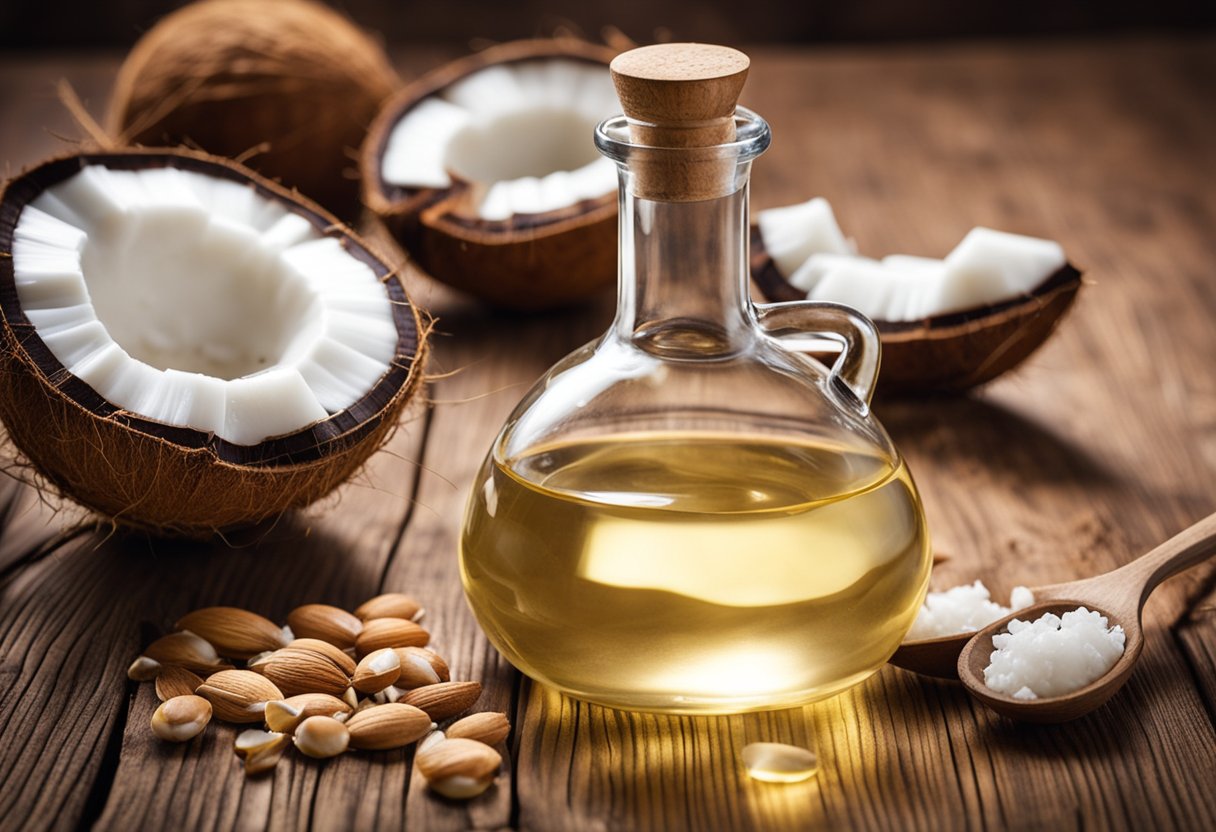
When it comes to price, coconut oil is generally more affordable than argan oil. This is because coconut oil is more widely available and can be produced at a lower cost. You can easily find coconut oil in most grocery stores and health food stores, and it is often sold in large quantities for a relatively low price.
On the other hand, argan oil is more expensive due to its limited availability and the labor-intensive process required to produce it. Argan oil is produced from the kernels of the argan tree, which only grows in certain regions of Morocco. The kernels must be hand-extracted and then cold-pressed to produce the oil. This process is time-consuming and requires a lot of labor, which is reflected in the higher price of argan oil.
While coconut oil is generally more affordable than argan oil, it is important to note that there can be a wide range in prices for both oils depending on the brand and quality. Some brands may sell coconut oil at a higher price point if it is organic or cold-pressed, while some argan oil brands may offer a lower price point if it is not pure or authentic.
From a price view point, if you are on a budget, coconut oil may be the more affordable option. However, if you are looking for a high-quality oil and are willing to invest in a more expensive product, argan oil may be worth the extra cost.
Difference in Availability
When it comes to availability, coconut oil is much easier to find than argan oil. Coconut oil is widely available in grocery stores, health food stores, and online retailers. You can find coconut oil in different forms such as refined, unrefined, virgin, and extra-virgin. It is also available in different sizes ranging from small jars to large containers.
Argan oil, on the other hand, is not as widely available as coconut oil. It is mostly found in specialty stores, natural health stores, and online retailers. Argan oil is produced from the kernels of the argan tree, which grows mainly in Morocco. Due to its limited availability, argan oil is more expensive than coconut oil.
While it may be difficult to find argan oil in physical stores, it is relatively easy to find it online. Many online retailers offer argan oil in different sizes and forms such as pure oil, shampoo, conditioner, and body lotion.
In terms of sustainability, argan oil is considered a more sustainable option than coconut oil. Coconut oil production requires large amounts of water and land, and it can contribute to deforestation in some areas. In contrast, argan oil production supports the local economy in Morocco and helps to preserve the argan tree forests.
Can You Substitute Them in Recipes
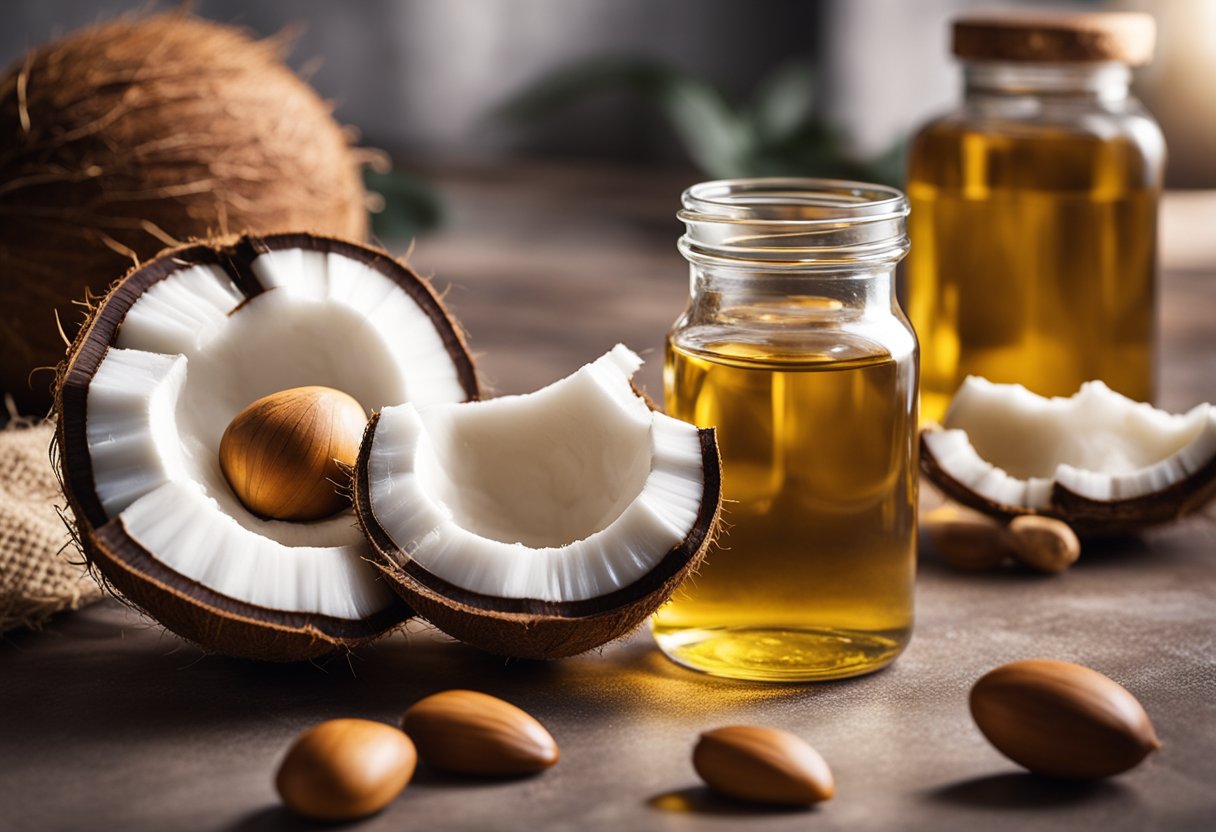
Coconut oil and argan oil are both versatile oils that can be used in a variety of recipes, but can they be substituted for each other?
The short answer is no. Coconut oil and argan oil have different characteristics that make them unique and difficult to substitute for each other in recipes.
Coconut oil has a high smoke point and a mild, nutty flavor that makes it a popular choice for cooking and baking. It is also solid at room temperature, which makes it a great replacement for butter in vegan recipes. Argan oil, on the other hand, has a low smoke point and a strong, nutty flavor that makes it better suited for use in dressings, dips, and other raw recipes.
That being said, there are some instances where you can substitute one oil for the other. Here are a few examples:
- In recipes that call for a small amount of oil, such as a marinade or salad dressing, you can use either coconut oil or argan oil depending on your preference for flavor.
- In recipes that call for a solid fat, such as a vegan pie crust, you can use either coconut oil or argan oil as a replacement for butter.
- In recipes that call for a high-heat cooking method, such as frying or sautéing, it is best to stick with coconut oil due to its high smoke point.
When substituting one oil for the other, keep in mind that the flavor and texture of the final product may be slightly different. It is always best to experiment with small batches before making a larger recipe to ensure that the substitution works well for your taste preferences.
Can You Mix Them
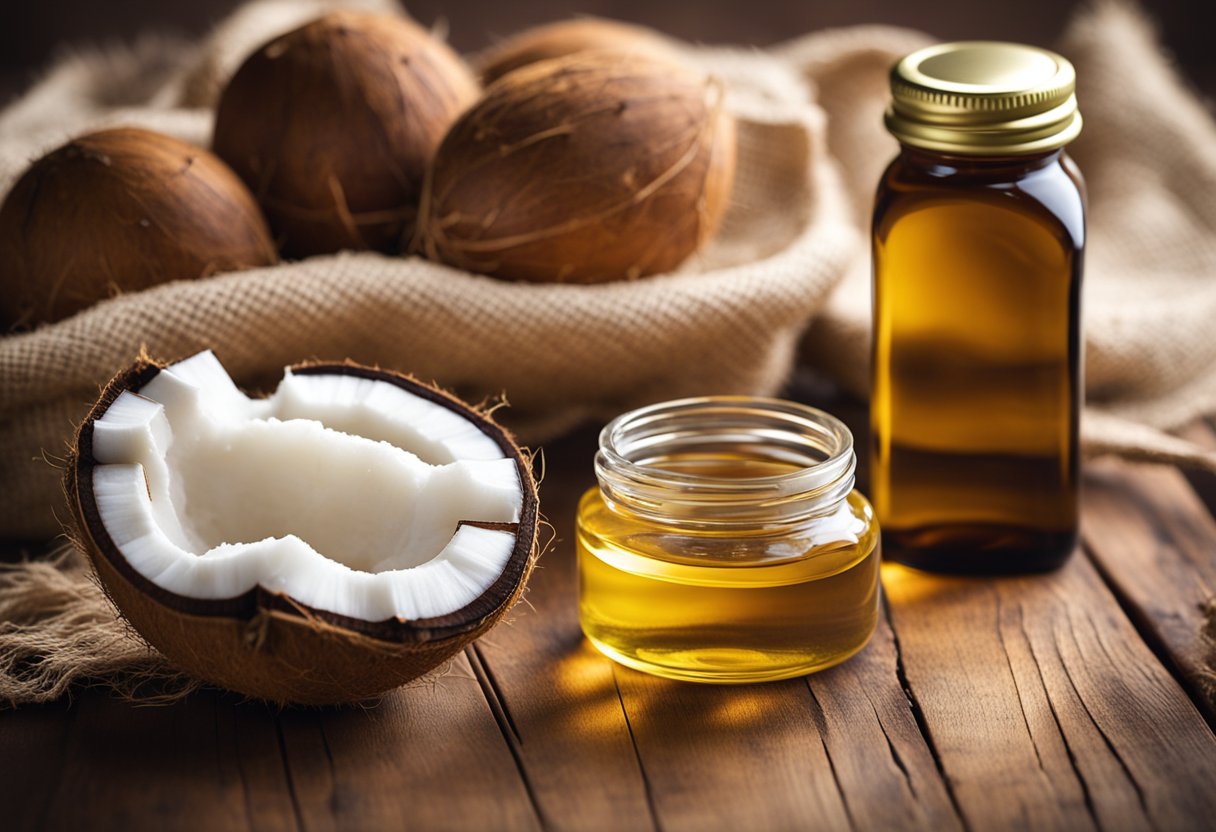
If you’re wondering whether you can mix coconut oil and argan oil, the answer is a resounding yes! In fact, combining these two oils can be a great way to get the best of both worlds.
One way to mix them is to simply blend equal parts of coconut oil and argan oil together. This can be a great all-purpose oil for use on both your hair and skin. You can apply it to your hair as a deep conditioning treatment or use it as a moisturizer for your skin.
Another way to mix them is to use each oil separately for different purposes. For example, you might use coconut oil as a hair treatment and argan oil as a facial moisturizer. This can be a great way to get the benefits of both oils without having to mix them together.
It’s worth noting that while both coconut oil and argan oil are generally safe for use on the skin and hair, everyone’s skin is different. If you have sensitive skin or are prone to breakouts, it’s always a good idea to do a patch test before using any new product on your skin.
Difference in Storage
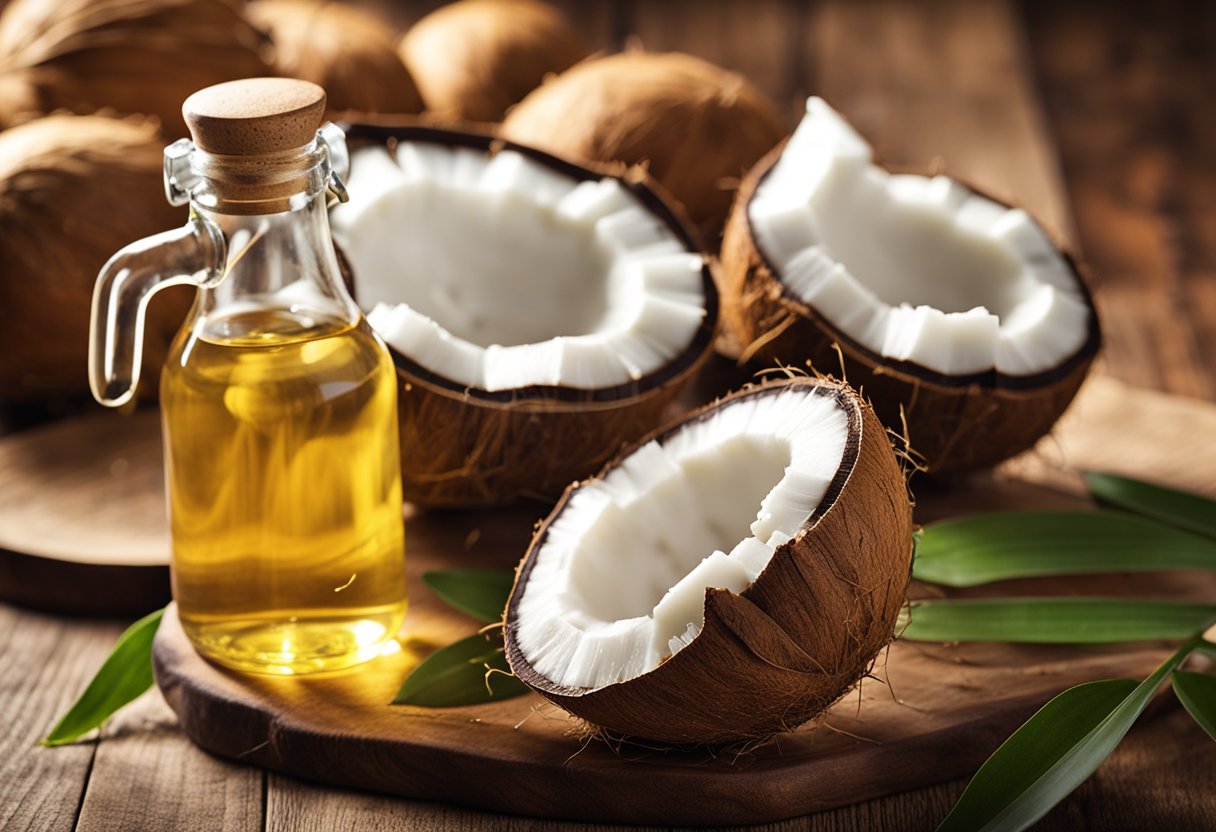
When it comes to storage, both coconut oil and argan oil have different requirements. Here are some things to keep in mind:
Coconut Oil
Coconut oil has a long shelf life and can last up to two years if stored properly. It should be kept in a cool, dry place away from direct sunlight. If the oil is exposed to high temperatures, it can melt and become liquid. If this happens, simply place the container in the refrigerator for a few minutes to solidify it again.
Argan Oil
Argan oil has a shorter shelf life than coconut oil and should be used within 6-12 months of opening. It should also be stored in a cool, dry place away from direct sunlight. Unlike coconut oil, argan oil should not be exposed to high temperatures as it can become rancid. It is recommended to store argan oil in a dark glass bottle to protect it from light and preserve its quality.
How to Tell If the Oil Has Gone Bad
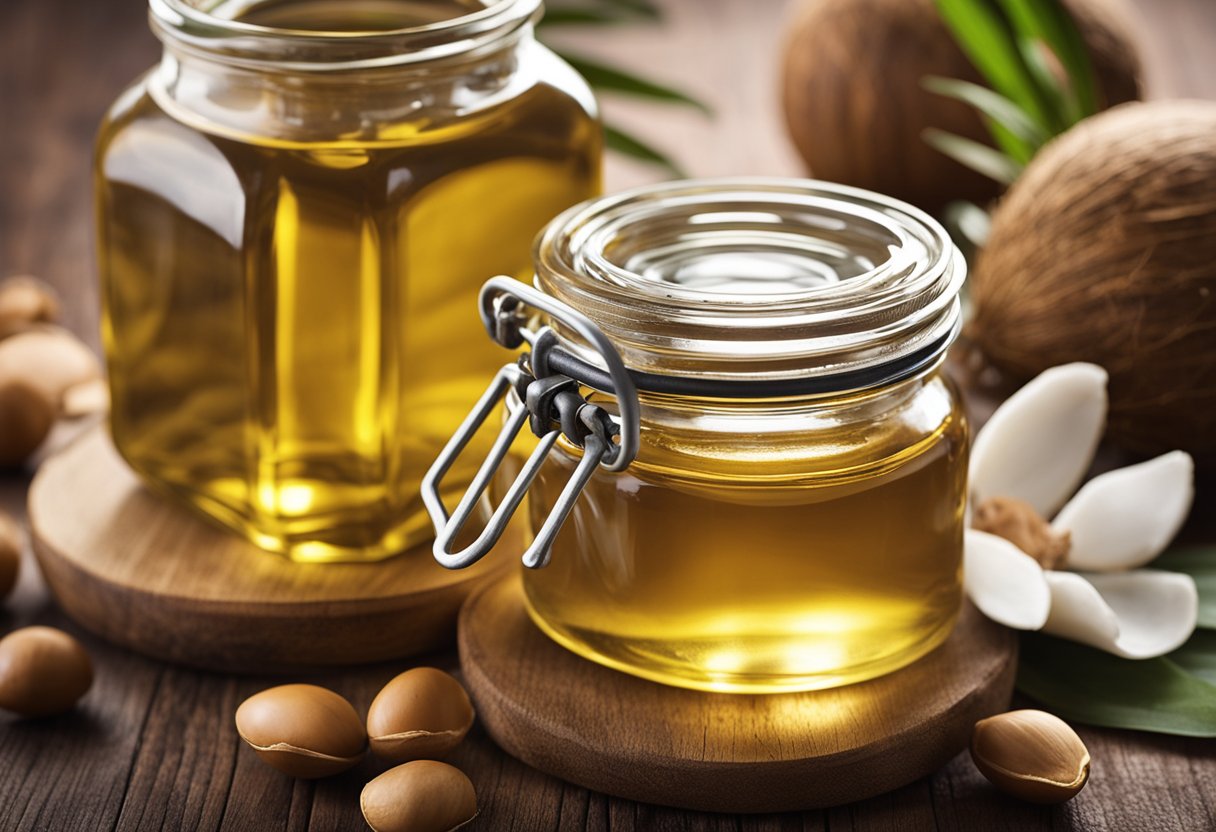
Coconut Oil
Coconut oil has a long shelf life, but it can still go bad. Here are some signs that your coconut oil has gone bad:
- Smell: If your coconut oil has a rancid or sour smell, it has gone bad. Fresh coconut oil has a sweet, nutty aroma.
- Color: If your coconut oil has turned yellow or brown, it has gone bad. Fresh coconut oil is white when solid and clear when liquid.
- Texture: If your coconut oil has a chunky or grainy texture, it has gone bad. Fresh coconut oil is smooth and creamy.
- Taste: If your coconut oil tastes sour or bitter, it has gone bad. Fresh coconut oil has a sweet, nutty flavor.
If you notice any of these signs, it’s best to discard your coconut oil and get a fresh jar.
Argan Oil
Argan oil is also a natural oil that can go bad over time. Here are some signs that your argan oil has gone bad:
- Smell: If your argan oil has a rancid or sour smell, it has gone bad. Fresh argan oil has a nutty aroma.
- Color: If your argan oil has turned yellow or brown, it has gone bad. Fresh argan oil is golden yellow.
- Texture: If your argan oil has a thick or sticky texture, it has gone bad. Fresh argan oil is light and absorbs easily into the skin.
- Taste: Argan oil is not meant for consumption, so taste is not a good indicator of whether it has gone bad.
If you notice any of these signs, it’s best to discard your argan oil and get a fresh bottle.
A Summary Table
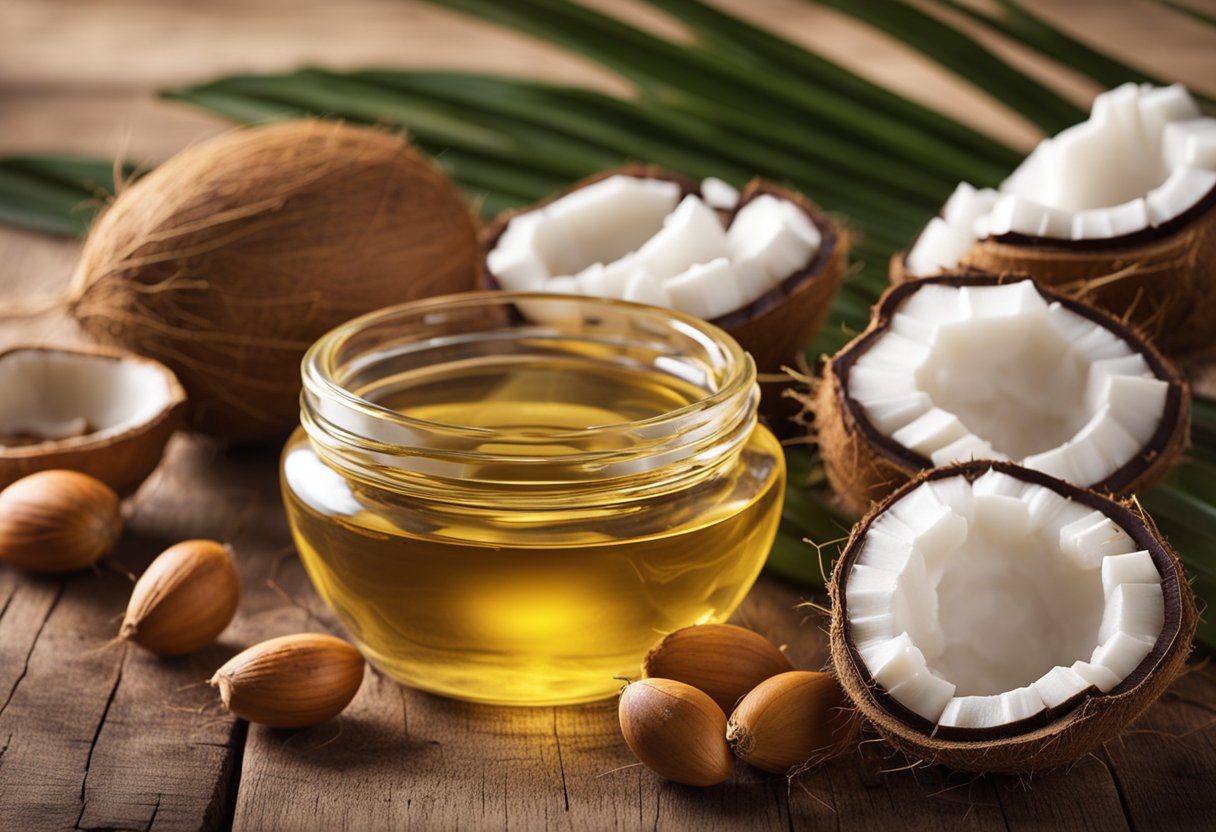
If you are still unsure which oil to choose, here is a table that summarizes the differences between coconut oil and argan oil.
| Criteria | Coconut Oil | Argan Oil |
|---|---|---|
| Usage | Great for cooking and baking, also used in skincare and haircare | Primarily used in skincare and haircare, not recommended for cooking |
| Smoke Point | 350°F (unrefined), 450°F (refined) | 420°F |
| Flavor | Mild coconut flavor and aroma | Nutty, earthy flavor |
| Nutritional Composition | High in saturated fat, medium chain triglycerides, and vitamin E | High in monounsaturated and polyunsaturated fats, vitamin E, and antioxidants |
| Health Benefits | May improve cholesterol levels, boost brain function, and aid in weight loss | May improve skin and hair health, reduce inflammation, and promote heart health |
| Risks | High in saturated fat, may cause skin irritation or breakouts | May cause allergic reactions in some individuals |
| Price | Generally less expensive | Generally more expensive |
| Availability | Widely available in grocery stores and online | Less widely available, primarily found in specialty stores and online |
Other Comparable Oils
While coconut oil and argan oil are both popular choices for hair and skin care, there are several other oils that are comparable in terms of benefits and uses.
Jojoba Oil
Jojoba oil is a liquid wax that is extracted from the seeds of the jojoba plant. It is similar in composition to the natural oils produced by our skin, making it an excellent choice for moisturizing and balancing the skin’s oil production. Jojoba oil is also great for hair care, as it can help to strengthen and hydrate the hair follicles.
Olive Oil
Olive oil is a staple in many kitchens, but it also has a variety of uses in skin and hair care. It is rich in antioxidants and healthy fats, making it a great choice for moisturizing and nourishing the skin. Olive oil can also help to reduce inflammation and promote hair growth.
Castor Oil
Castor oil is a thick, sticky oil that is extracted from the seeds of the castor plant. It is known for its ability to promote hair growth and thickness, as well as its moisturizing properties for the skin. Castor oil can also be used as a natural laxative and is often used in traditional medicine.
Sweet Almond Oil
Sweet almond oil is a light, non-greasy oil that is rich in vitamins and minerals. It is a great choice for moisturizing and nourishing the skin, and can also help to reduce inflammation and promote a healthy complexion. Sweet almond oil is also great for hair care, as it can help to strengthen and soften the hair.
